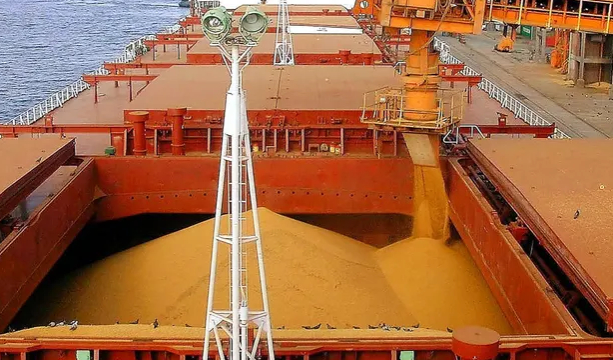November 25, 2025 | 07:23 GMT +7
November 25, 2025 | 07:23 GMT +7
Hotline: 0913.378.918
November 25, 2025 | 07:23 GMT +7
Hotline: 0913.378.918

Transporting food produces an estimated 3bn tonnes of greenhouse gas emissions each year, a new study suggests. Photo: Orlando Kissner/AFP/Getty Images
Transporting food from where it is produced to our dinner plates creates at least triple the amount of greenhouse gas emissions as previously estimated, a new study suggests.
So called “food miles” are likely responsible for about 6% of the world’s greenhouse gas emissions, the authors of the study found after calculating that 3bn tonnes of CO2-equivalent was produced in transporting food for human consumption each year.
Scientists who carried out the research, which analysed 74 countries and regions and 37 different types of food, found richer countries accounted for 46% of the emissions from food miles but just 12.5% of the world’s population.
Australian authorities to buy out fisheries, citing climate crisis
Fruit and vegetables had the highest food miles emissions because they often needed to be refrigerated and consumers demanded out-of-season foods.
The University of Sydney’s Prof David Raubenheimer, a co-author of the study published in the journal Nature Food, said research on making food production more sustainable had tended to focus on comparing plant-based diets to meat.
“We tend to interpret information around us in simplistic terms, like ‘meat is bad and vegetables are good’ but we wanted a much more comprehensive picture,” he said.
“Our study shows that in addition to shifting towards a plant-based diet, eating locally is ideal, especially in affluent countries.”
Study leader Dr Mengyu Li, also of the University of Sydney, said when food miles were added to emissions from land use, production and methane from cattle, about 30% of the world’s greenhouse gas emissions were linked to food production.
“Food transport emissions add up to nearly half of direct emissions from road vehicles,” she said.
While meat production emits 2.8bn tonnes CO2-e, which is seven times as much as fruit and vegetables, the emissions from food miles for meat was only 110m tonnes globally.
This compared to 1.06bn tonnes for fruit and vegetables, with the second highest emitting food group being cereals and flour.
The global total of 3bn tonnes of CO2-e related to food miles was between 3.5 and 7.5 times higher than previous estimates, the authors said.
As well as calculating the emissions from moving the food to the consumer, the study also included the emissions from inputs used to produce the food. For example, the calculations would include emissions from grain that is grown and then transported to feed animals.
About 1.7bn tonnes CO2-e of emissions came from moving food within countries, with 1.3bn tonnes coming from international transportation.
Raubenheimer said supply of food was driven by demand and if consumer attitudes changed this could “reap environmental benefits on the grandest scale”.
“One example is the habit of consumers in affluent countries demanding unseasonal foods year-round, which need to be transported from elsewhere,” he said.
Total emissions from fruit and vegetables were high because of the higher distances travelled, and the fact that humans eat a lot of them.
He said a next step was to use the study findings to build a more detailed picture of the impacts of different diets – on a societal and individual level – on food mile emissions.
But he said a good rule was that if all the food you bought was produced locally, then less meat and more fruit and vegetables would be linked to less emissions.
But if a plant-based diet included lots of imported and out-of-season produce, this would push emissions higher.
“Eating local seasonal alternatives, as we have throughout most of the history of our species, will help provide a healthy planet for future generations,” he said.
Options for richer countries to reduce emissions included cleaner energy sources for vehicles and providing incentives to use production and distribution methods that cut emissions.
(The Guardian)

(VAN) Brazil's COP30 presidency pushed through a compromise climate deal on Saturday that would boost finance for poor nations coping with global warming but that omitted any mention of the fossil fuels driving it.

(VAN) Poultry farmers in the UK have been warned that they could face one of the worst winters yet for bird flu.

(VAN) Prices of main-crop paddy have risen sharply, with jasmine rice hitting 16,100 baht per tonne — the highest level in years.

(VAN) In Brazil, FAO unveiled a series of reports and initiatives showing how sustainable agrifood systems are a solution to the climate crisis.

(VAN) With names like neodymium and dysprosium, rare-earth elements sound exotic — and their perceived scarcity has only added to the mystique.

(VAN) In a new study published in Trends in Biotechnology, researchers used a gene-editing technology called CRISPR to increase a fungus's production efficiency and cut its production-related environmental impact by as much as 61%- all without adding any foreign DNA.

(VAN) A top official in Beijing’s Cop delegation says China is committed to clean energy – but US’s absence is a problem.